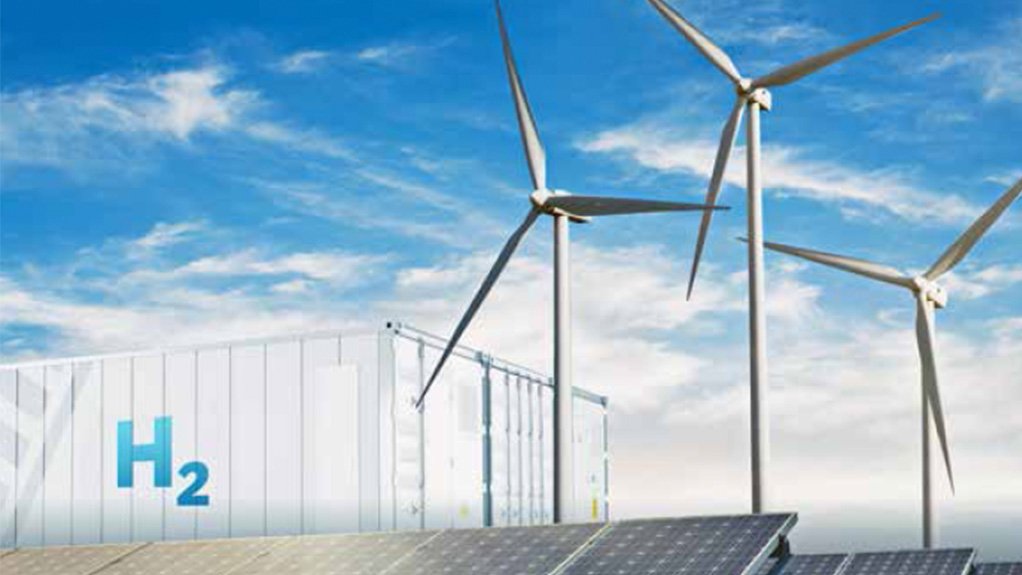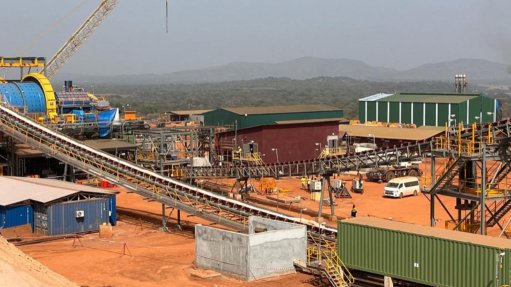Three coastal provinces move to partner on green hydrogen ahead of finalisation of country strategy
The Eastern, Northern and Western Cape provinces have agreed to team up in a bid to position South Africa as a global hub for the production of green hydrogen and derivative products, as well as to produce the components required in the green hydrogen value chain, ahead of the finalisation of the long-awaited Green Hydrogen Commercialisation Strategy.
The three coastal provinces are all playing host to potential multibillion-rand green-hydrogen projects and have been working separately on strategies and roadmaps in an effort to capture the jobs, growth and industrialisation opportunities that could flow should the projects materialise.
However, the three provincial administrations have also decided that there is greater potential to advance the opportunity through cooperation rather than competition, particularly in the areas of infrastructure, skills development, trade and investment promotion, as well as on the development of supportive policy and regulation.
They are also open to extending this cooperation into the region, including to green-hydrogen aspirant Namibia, in an effort to create a Southern African Development Community hydrogen corridor.
The areas of collaboration have been formalised into a memorandum of understanding (MoU) that will be signed at South Africa’s second Green Hydrogen Summit under way in Cape Town.
The trilateral MoU follows on from a similar agreement announced in 2022 between the Western Cape and Northern Cape governments, which have both since also advanced with their individual strategies.
The Western Cape government is aiming to develop Saldanha Bay, which is an established deep water port and industrial hub, into a production centre for green hydrogen and derivatives such as green direct reduced iron, which could be manufactured at the currently mothballed Saldanha Steel Works, as well as bunkering fuel for the shipping industry.
The province also envisages the Atlantis Special Economic Zone becoming a key production centre for components used in the green-hydrogen value chain, including wind, solar and electrolyser components.
Green hydrogen is produced by using renewable electricity in an electrolyser to split water into hydrogen and oxygen. The clean energy carrier and the derivative products are seen as becoming increasingly important in assisting those sectors that are unable to decarbonise directly using renewable electricity, such as steel, petrochemicals, fertilisers, cement, as well as long-haul land, sea and air transportation.
The Northern Cape has also finalised its Green Hydrogen Roadmap, which indicates that between $300-billion and $500-billion of green hydrogen production and value-chain investment could be directed the way of the province, which has abundant sun, wind and land, by 2050.
There are several projects already being progressed in the province, which also views the proposed greenfield port of Boegoebaai, located just south of the Namibian border, as potentially emerging as a flagship future production and export hub.
In the Eastern Cape, the strategy will be implemented primarily in the Coega Special Economic Zone, where Hive Hydrogen is considering a 1.07 GW investment to produce green hydrogen and green ammonia for export.
The MoU and the provincial strategies are said to be in line with the draft Green Hydrogen Commercialisation Strategy, which has been under development since 2021 but which has not yet been approved by government.
Speaking at the launch of the summit, Electricity Minister Kgosientsho Ramokgopa indicated that he did not expect the strategy to meet with any resistance from Cabinet once it was presented for approval, but provided no definitive time frame for its consideration by the executive.
Industrial Development Corporation COO Joanne Bate, who is also leading the panel established by Trade, Industry and Competition Minister Ebrahim Patel to oversee the finalisation of the strategy, indicated that its formulation was well advanced.
Bate reported that a systems approach had been adopted in an effort to ensure that all the various components of developing a green hydrogen industry, including the associated value chain, were considered with a view to maximising the social, economic and trade benefits to the country.
It was stressed that the opportunities extended beyond the Eastern, Northern and Western Cape provinces and also included opportunities in provinces such as the Free State and Mpumalanga where Sasol was investigating displacing grey hydrogen produced from coal with green hydrogen to produce sustainable aviation fuels and other products.
Bate said the strategy would include a strong domestic component in a bid to help decarbonise the country’s hard-to-abate export sectors, which were facing growing pressure to lower the carbon intensity of their products, as well as an export component.
“We see the export market as a critical enabler of the green hydrogen opportunity, and it isn't to export scarce electrons to decarbonise our partner markets.
“It’s really to ensure that we lock into the price premiums that are available in the global markets in order to ensure that we cost-effectively develop our commercial scale green hydrogen industry in South Africa.
“The sooner we can reach commercial scale in South Africa, the sooner we can accelerate the use of green hydrogen within our heavy industry as a decarbonisation and re-industrialisation opportunity,” she explained.
Article Enquiry
Email Article
Save Article
Feedback
To advertise email advertising@creamermedia.co.za or click here
Press Office
Announcements
What's On
Subscribe to improve your user experience...
Option 1 (equivalent of R125 a month):
Receive a weekly copy of Creamer Media's Engineering News & Mining Weekly magazine
(print copy for those in South Africa and e-magazine for those outside of South Africa)
Receive daily email newsletters
Access to full search results
Access archive of magazine back copies
Access to Projects in Progress
Access to ONE Research Report of your choice in PDF format
Option 2 (equivalent of R375 a month):
All benefits from Option 1
PLUS
Access to Creamer Media's Research Channel Africa for ALL Research Reports, in PDF format, on various industrial and mining sectors
including Electricity; Water; Energy Transition; Hydrogen; Roads, Rail and Ports; Coal; Gold; Platinum; Battery Metals; etc.
Already a subscriber?
Forgotten your password?
Receive weekly copy of Creamer Media's Engineering News & Mining Weekly magazine (print copy for those in South Africa and e-magazine for those outside of South Africa)
➕
Recieve daily email newsletters
➕
Access to full search results
➕
Access archive of magazine back copies
➕
Access to Projects in Progress
➕
Access to ONE Research Report of your choice in PDF format
RESEARCH CHANNEL AFRICA
R4500 (equivalent of R375 a month)
SUBSCRIBEAll benefits from Option 1
➕
Access to Creamer Media's Research Channel Africa for ALL Research Reports on various industrial and mining sectors, in PDF format, including on:
Electricity
➕
Water
➕
Energy Transition
➕
Hydrogen
➕
Roads, Rail and Ports
➕
Coal
➕
Gold
➕
Platinum
➕
Battery Metals
➕
etc.
Receive all benefits from Option 1 or Option 2 delivered to numerous people at your company
➕
Multiple User names and Passwords for simultaneous log-ins
➕
Intranet integration access to all in your organisation





















